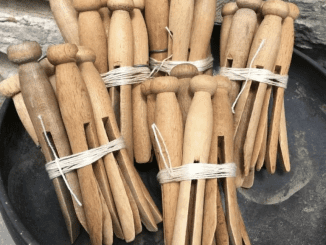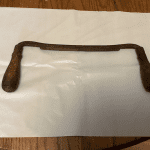A stuffy nose can be a real nuisance. When medications like Dayquil just aren’t doing the trick, turning to tried-and-true home remedies might be the best way to find relief. Let’s dive into the causes of that relentless congestion and explore some of the most effective natural remedies for clearing your nasal passages.
What Causes a Stuffy Nose? Understanding Nasal Congestion

A stuffy nose, or nasal congestion, happens when the tissues in your nose become swollen due to inflamed blood vessels. This can be triggered by various factors, such as colds, allergies, sinus infections, or even exposure to environmental irritants like smoke. Sometimes, structural issues in the nose, like a deviated septum, can make congestion worse or more frequent.
Recognizing what’s behind your stuffy nose is crucial, as it can help you choose the most effective remedy. Not all congestion stems from the same problem, so knowing the cause can guide you toward the right solution.
Why Over-the-Counter Medications Don’t Always Work
Medications like Dayquil are designed to provide temporary relief for cold and flu symptoms. While they may ease discomfort initially, they often fail to address the root cause of congestion, especially if it’s due to allergies or chronic sinus problems.
In some cases, using decongestants too frequently can even lead to rebound congestion, where your nasal passages feel even stuffier when the medication wears off. If you find yourself constantly reaching for over-the-counter meds without much success, it might be time to consider alternative options.
Home Remedies That Can Help Clear Your Nasal Passages
When it comes to soothing a stuffy nose naturally, several home remedies can be surprisingly effective. These options focus on reducing inflammation, thinning mucus, and keeping your nasal passages moisturized. Here are some methods to try:
The Power of Steam Inhalation
Steam inhalation is a simple and effective way to open up blocked nasal passages. The warmth and moisture help to thin mucus, making it easier to expel.
To do this at home, bring a pot of water to a boil, then carefully transfer it to a heat-safe bowl. Lean over the bowl with a towel over your head to trap the steam, and breathe deeply. For an added boost, you can add a few drops of essential oils like eucalyptus or peppermint, which have natural decongestant properties.
Using Saline Nasal Sprays for Gentle Relief

Saline sprays are another great option for relieving congestion. These sprays help to moisturize dry nasal passages and thin mucus, making it easier to clear out. Saline sprays are safe for regular use and can be particularly helpful for those dealing with allergies or dryness caused by indoor heating.
If you’re looking for a quick DIY solution, you can make your own saline rinse by mixing one cup of warm, distilled water with a quarter teaspoon of salt and a pinch of baking soda. Just make sure the mixture is well-dissolved before using it in a clean nasal spray bottle or with a neti pot.
Essential Oils: A Natural Way to Ease Nasal Congestion
Certain essential oils, such as eucalyptus, peppermint, and tea tree oil, contain compounds that can help open up nasal passages and reduce inflammation. You can add a few drops to a diffuser or mix them with a carrier oil for a gentle massage around the nose and temples.
Alternatively, you can incorporate essential oils into steam inhalation, as mentioned earlier. Just be cautious with the amount, as essential oils are potent and only a few drops are needed.
The Importance of Staying Hydrated

When you’re dealing with congestion, staying hydrated is essential. Drinking plenty of water and warm liquids helps thin mucus, making it easier for your body to clear it out. Herbal teas, like ginger or chamomile, can be particularly soothing and provide added benefits.
Warm broths or teas can also be comforting and help open up nasal passages. If plain water feels boring, try adding a slice of lemon or a splash of juice to make staying hydrated more enjoyable.
Using a Humidifier to Relieve Nasal Blockage
Dry indoor air, especially during the winter months, can worsen nasal congestion by drying out your nasal passages. Adding moisture to the air with a humidifier can help prevent dryness, making it easier to breathe and keeping mucus from thickening.
For best results, place the humidifier in your bedroom or wherever you spend the most time, and set it to maintain a humidity level between 30-50%. This range helps prevent the air from becoming too dry or too moist, which can also lead to other issues.
How Your Diet Can Influence Nasal Congestion

Believe it or not, certain foods can help—or hurt—your nasal health. For instance, spicy foods can temporarily clear out your nasal passages by loosening mucus. So, adding a little extra spice to your meals might provide quick, though short-lived, relief.
On the flip side, some people find that dairy products can increase mucus production, so it may be helpful to limit dairy if you notice this effect. Eating a diet rich in fruits, vegetables, and omega-3 fatty acids, which have anti-inflammatory properties, can also support your immune system and potentially reduce congestion.
Herbal Teas: Soothing Sips for a Stuffy Nose
Warm herbal teas like ginger, peppermint, and chamomile are known for their anti-inflammatory and soothing properties. Ginger and peppermint, in particular, can act as natural decongestants, while chamomile helps to relax and soothe. Sipping on warm tea not only keeps you hydrated but also provides some relief from that stuffy feeling.
Adding a bit of honey and lemon to your tea can further boost its effectiveness, as honey has natural antibacterial properties and lemon is high in vitamin C, which supports your immune system.
When to See a Doctor for Persistent Congestion

While home remedies can be very effective, it’s essential to seek medical advice if your nasal congestion lasts more than a week, worsens, or is accompanied by symptoms like high fever, severe headache, or facial pain. Persistent or severe congestion could indicate an underlying issue, such as a sinus infection or structural nasal problem, that may require professional treatment.
Conclusion: Finding the Right Home Remedy for You
A stuffy nose can be incredibly frustrating, but with the right home remedies, you can find relief and start breathing easier. From steam inhalation to hydration and humidifiers, there are numerous options to try based on what you have available and what suits your preferences.
Whether you find success with essential oils, a soothing cup of tea, or adjusting your diet, experimenting with natural remedies may help you manage nasal congestion without the side effects of over-the-counter medications. Just remember, if your symptoms persist or worsen, it’s always a good idea to consult a healthcare professional.


